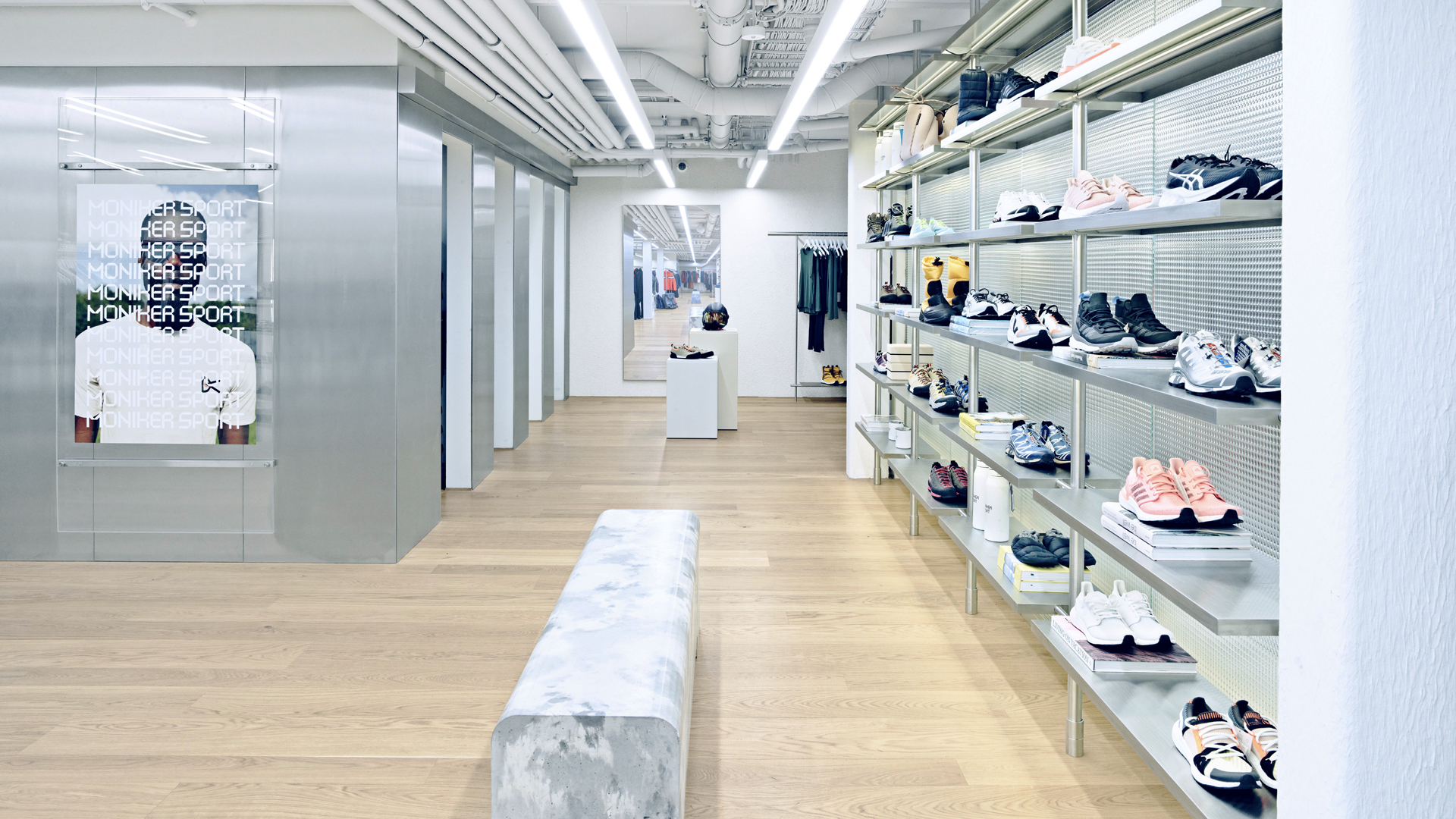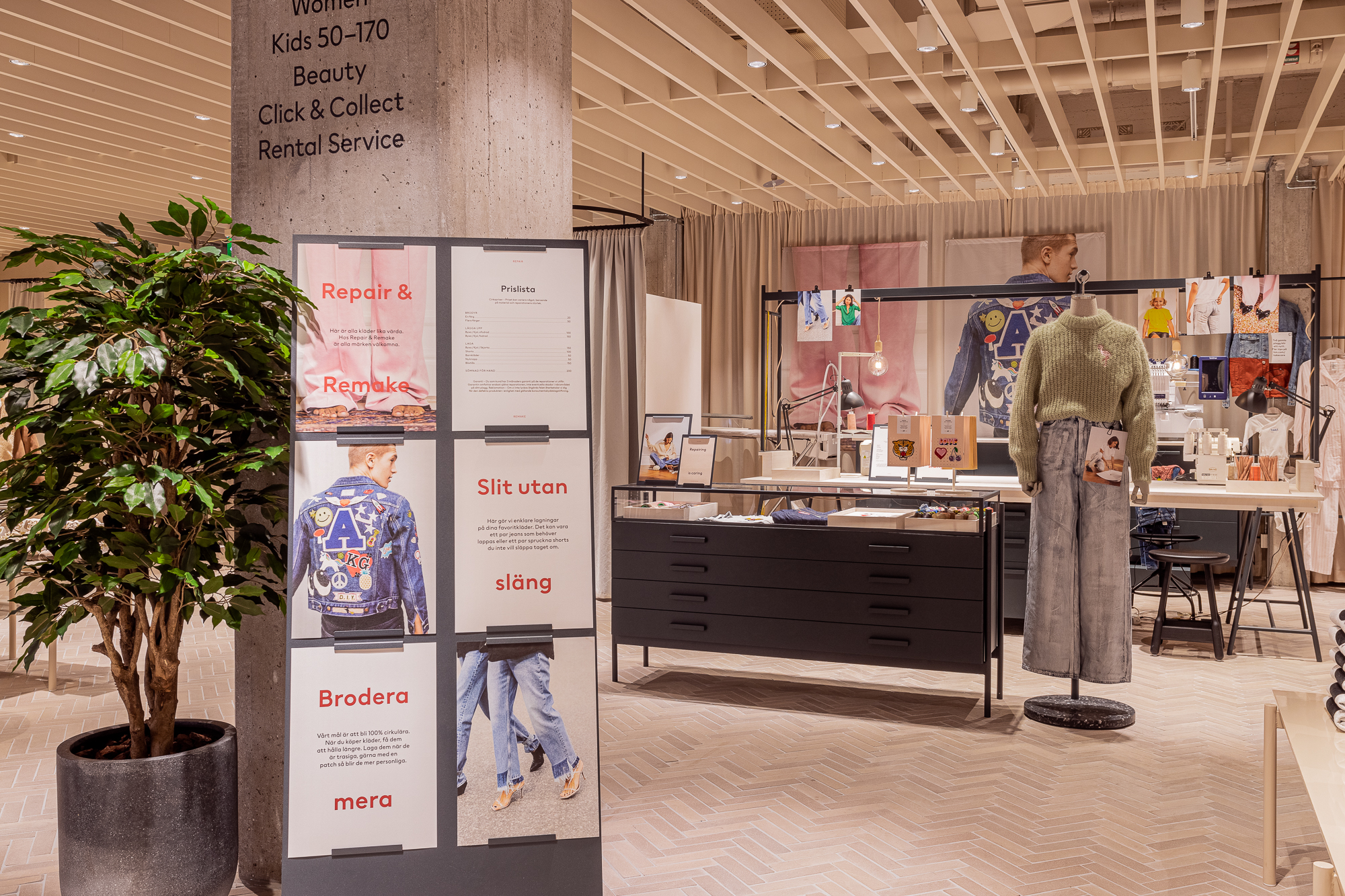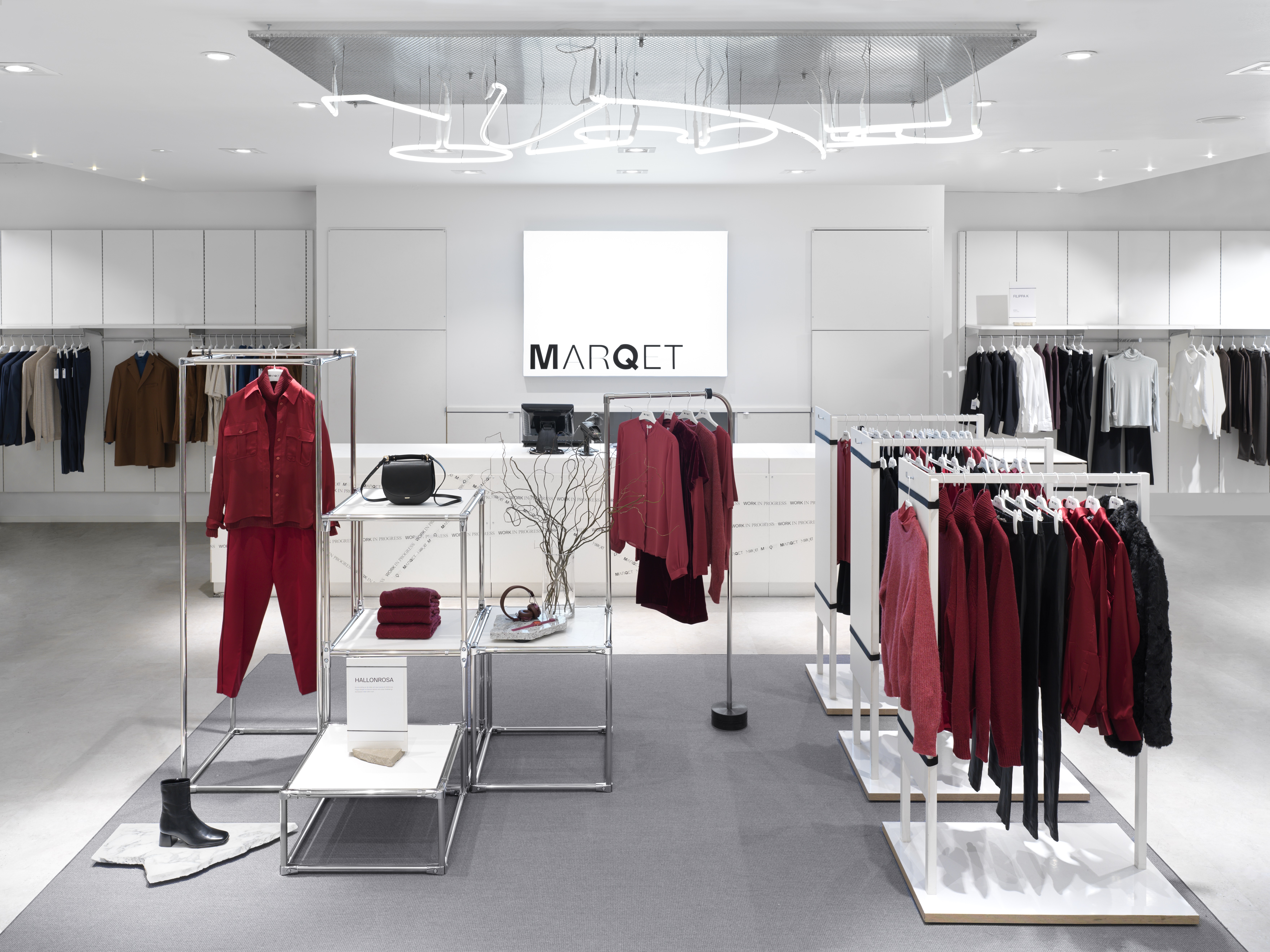There has been talk about the death of retail over the last years. Numbers are grim. In Sweden alone, 350 fashion stores have closed in five years (out of 1475 stores in total). That is almost 25 % of all stores in five years. Department stores and shopping malls are expected to become distribution centres for players like Amazon etc. Is retail really dead?
Written by Stefan Nilsson
When Swedish fashion brand H&M talked about their relationship to physical stores and the death of retail, CEO Helena Hermansson said, “This (death of retail) is not an expression we use. If you look at the physical store and our retail network, the store is more important than ever.” To support this opinion, we see that research company A T Kearney says that 81 % of Gen Z prefer a physical store compared to online experiences. Maybe we are tired of screens and want something else?

Snøhettas store concept for Moniker in Oslo, Norway
© Photo: Calle Huth
Norwegian architects Snøhetta agrees that physical retail still has an opportunity. “Retail stores are one of the greatest and last public meeting places in the contemporary urban landscape, and will continue to be so in the future. Shops will become more meeting places with sets of activities. We can already see retail space becoming cafés, workout studios, libraries, and this is just the beginning.”

H&M new concept store at Sergels Torg in Stockholm. Notice the repair stations.
© Photo: H&M
H&M has realised this too. Their store at Sergels Torg in Stockholm not only holds the latest fashion but also a beauty bar opening at 07.30 in the morning. But more interesting is the repair shop and the fashion library. Repairing and renting is expected to grow, according to Jessica Ring, expert at Svensk Handel (Swedish Trade Association).
.JPG)
Asket new concept store in Stockholm by Specific Generic.
© Photo: Erik Lefvander
Swedish architect Andreas Bozarth Fornell, founder of Specific Generic, got a lot of attention for retail concepts for brands like Acne Studios. He confirms that retail is changing. He thinks shops as a pure point-of-sale will disappear and instead we will see more services. And we will get fewer but more interactive stages.
“Before the pandemic, we were helping brands set up 1000 shops, and with the new change we help them set up only 50 but really relevant and community-driven shops”, says Bozarth Fornell.
He explains that a store needs to be like a theatre where one can host a dinner for influencers one evening and a seminar the next. Flexibility is key. Moving walls are important but even more is lighting. The right light sets the correct ambience.

Marqet is a new store made only of recycled materials.
© Photo: Malmö Upcycling Service
Sustainability will of course play a role in the development of future retail. Swedish fashion store chain MQ identified sustainability and upcycling as a new driver to stores. Not only the content of the store should be sustainable but also the actual physical space. MQ asked local design studio M.U.S. to make a retail concept with full focus on this. Clothes racks and display materials were discarded pieces scouted, adjusted and polished specifically for the stores. At the cash check-out there were also displays with pieces from thrift shop chain Myrorna.
“Besides upcycled materials we wanted the store to be more of a meeting place with co-working space and interchangeable modular systems”, says Anna Gudmundsdottir of M.U.S. “For our next store concept, we want to add more storytelling and more consumer information.”

The sustainable convenience store PBX might replace the concepts of older Seven Elevens. Fully sustainable.
© Rendering by PBX
Norwegian-Swedish design studio Reactor has a different perspective on storytelling. Johan Kristiansen, architect at the studio, is working with convenience brand Reitan. Kristiansen says, “A convenience store should firstly help you find something you need, secondly talk about price and thirdly talk about storytelling.”
Reitan is the brandowner of Seven Eleven and Pressbyrån in the Nordic region, and later this autumn they will open PBX, a convenience store pushing new limits for sustainability and retail. The store will be a proper laboratory with experiments on all aspects of sustainability. From what they sell to how they build the store. The main focus for Reactor and PBX has been to avoid PVC and plastics so store displays are made of metal and signs could then be of sustainable paper. Also, they looked at energy consumption (cooling and heating). All to meet the new demands of a contemporary consumer. You want to buy the right kind of coffee in a store built in the proper sustainable way.
To sum it up. Retail is changing. A store will be a meeting point and must cater for different kinds of needs. Pure point of sales is not interesting. Community is important. The store needs to be flexible with properties like movable walls or lighting. Upcycling and sustainability are important. We will see a deeper thought in materials but also look at energy consumption.
Keen to hear more from Stefan Nilsson? Be there, when he holds his lecture about recycling and architecture on 29th September at ARCHITECT@WORK Oslo. Click here to find out more about his lecture.